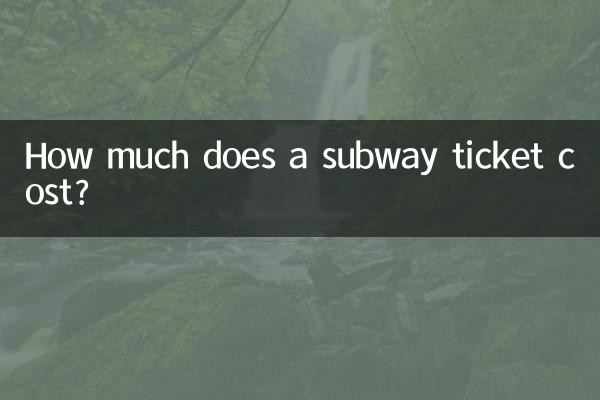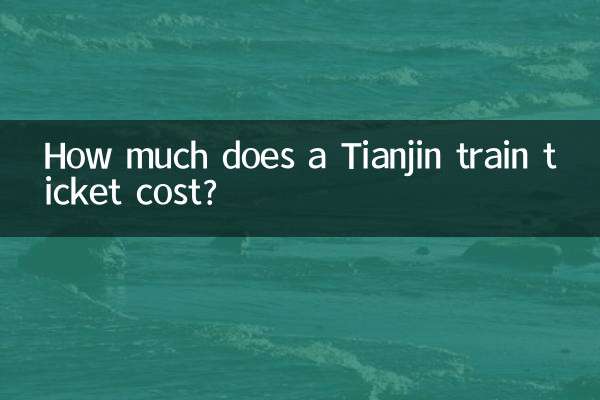How much does a subway ticket cost: hot topics and structured data analysis on the Internet in the past 10 days
Recently, "subway fares" have become one of the hot topics on social platforms, especially in the context of rumors of price increases in first-tier cities such as Beijing and Shanghai. This article will combine the hot content of the entire network in the past 10 days and use structured data to analyze the current status of subway fares in various places and the focus of public attention.
1. Comparison of subway fares in major cities across the country (data as of October 2023)

| City | Starting price | cap price | Preferential policies |
|---|---|---|---|
| Beijing | 3 yuan (within 6 kilometers) | 10 yuan | Accumulated discounts, transportation joint card |
| Shanghai | 3 yuan (within 6 kilometers) | 14 yuan | Discount of 1 Yuan for bus transfer |
| Guangzhou | 2 yuan (within 4 kilometers) | 15 yuan | 40% off after 15 times |
| Shenzhen | 2 yuan (within 4 kilometers) | 14 yuan | 5% off when paying with QR code |
| Chengdu | 2 yuan (within 4 kilometers) | 12 yuan | Sub-card discount |
2. Top 5 hot topics in the past 10 days
| Ranking | topic | Number of discussions (10,000) | Related events |
|---|---|---|---|
| 1 | Will subway fares rise? | 128.6 | Rising CPI in many places triggers speculation |
| 2 | Is a monthly subway pass cost-effective? | 87.3 | Actual test of Beijing’s proposed futures ticket |
| 3 | Children riding standards | 65.2 | Height vs Age Controversy |
| 4 | Subway and bus combined transportation | 53.8 | Shanghai transfer new policy |
| 5 | Mobile payment discounts | 42.1 | Subsidy war among payment platforms |
3. Analysis of fare components
According to the latest data disclosed by the Ministry of Transport, subway fares usually consider three major cost elements:construction cost(about 35%),Operation and maintenance(about 50%),overhead(about 15%). It is worth noting that all urban subway systems require financial subsidies, and the average subsidy range is between 1 and 3 yuan per ticket.
4. Comparison of preferential policies for special groups
| group | Beijing | Shanghai | Guangzhou |
|---|---|---|---|
| elderly | Free (card required) | Weekday peak charges | half price |
| disabled people | free | free | free |
| student | Half price (compulsory education) | No unified policy | Yangchengtong Student Card Discount |
5. Forecast of future fare changes
Several transportation experts stated in recent interviews:The possibility of large-scale price increases in the short term is low, but there may be three adjustment directions: 1) differentiated pricing during commuting peaks; 2) tiered fare increases for long-distance rides; 3) exclusive discounts for electronic payments. It is worth noting that the "event pass" model launched during the Hangzhou Asian Games was well received.Scenario-based pricingIt may become a new trend.
6. Five issues that netizens are most concerned about
Compiled based on data from Weibo, Zhihu and other platforms: 1) Why are ticket prices so different in different cities? (38% asked) 2) Why is it so difficult for the subway to make a profit? (27%) 3) Does fare adjustment require a hearing? (19%) 4) Is QR code payment more expensive than physical card payment? (11%) 5) How to charge for cross-city subway? (5%)
In summary, subway fares are an urgent need for people’s livelihood, and their pricing mechanism has always maintainedPublic welfare attributes and economic lawsdelicate balance. It is recommended that passengers make reasonable use of electronic payment discounts, commuter tickets and other policies based on their own circumstances, and pay attention to fare adjustment announcements issued by local governments.

check the details

check the details